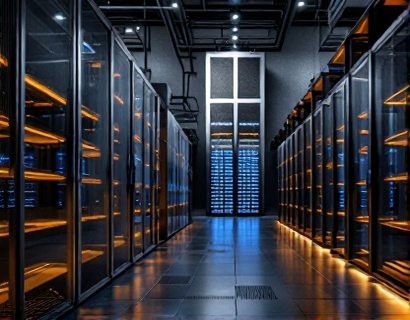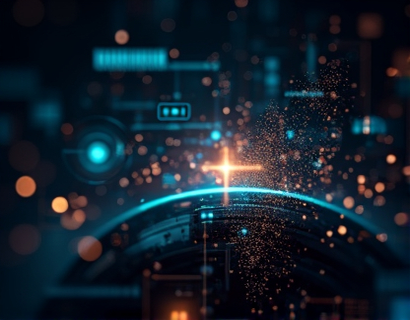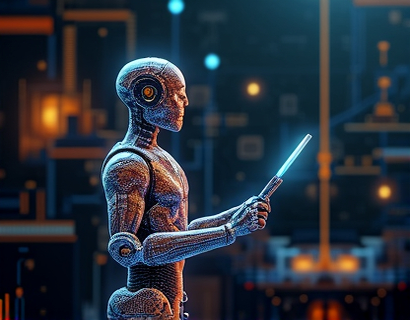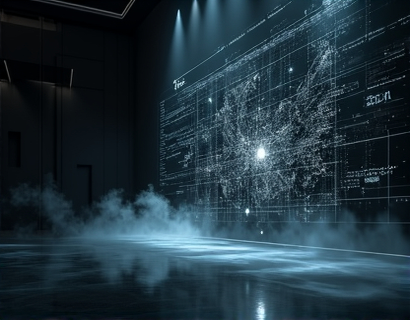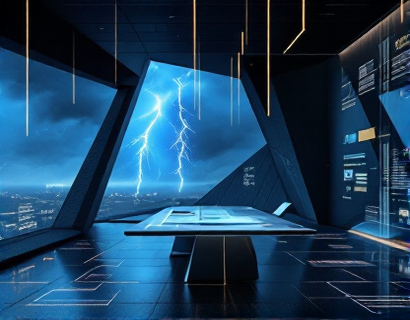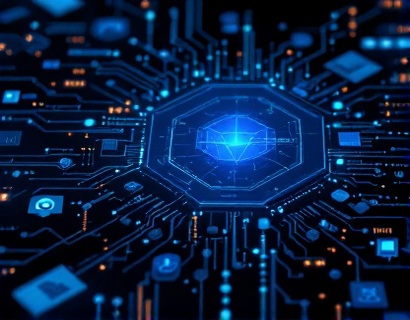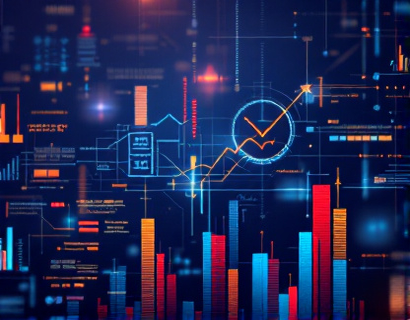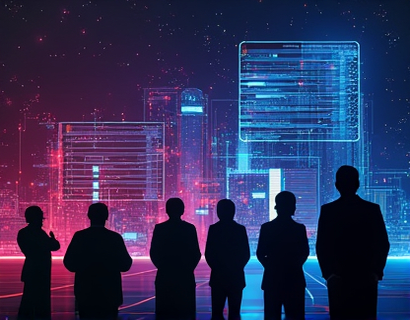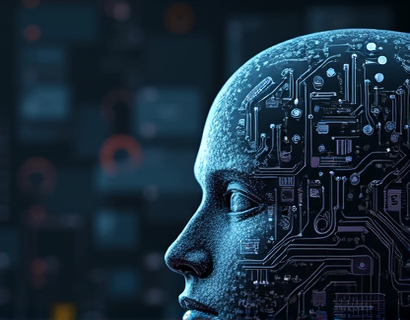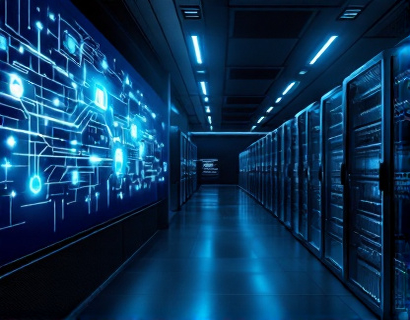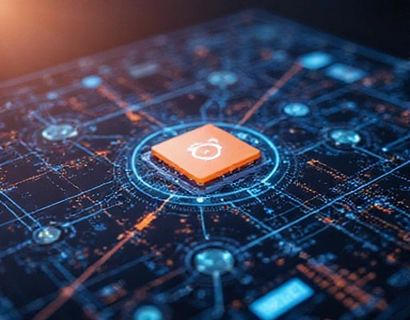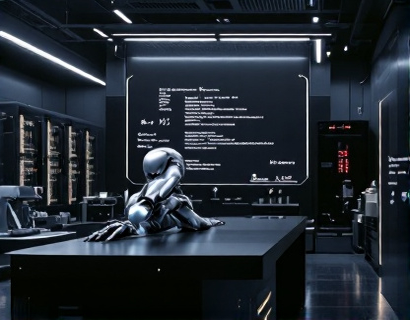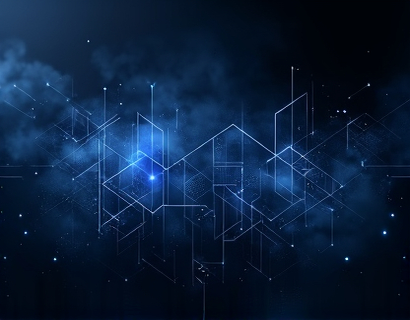Decentralized DAOs: Revolutionizing Web3 Governance with Community Empowerment and Innovation
In the rapidly evolving landscape of Web3, decentralized autonomous organizations (DAOs) stand as a pivotal force, redefining governance and community engagement. This article delves into the transformative potential of DAOs, focusing on how they empower communities, enhance transparency, and drive scalability and innovation in the management of digital protocols. By exploring the core principles and real-world applications of DAOs, we aim to illuminate the path towards a more interconnected and future-proof digital ecosystem.
Understanding DAOs
Decentralized autonomous organizations, or DAOs, are digital entities governed by smart contracts on blockchain networks. These smart contracts encode the rules and decision-making processes, ensuring that the organization operates autonomously without central authority. The essence of a DAO lies in its decentralized nature, where decisions are made collectively by its members through a voting system, often utilizing cryptocurrency as a medium of participation.
The concept of DAOs emerged from the broader blockchain and cryptocurrency movement, building on the principles of decentralization and community-driven governance. Unlike traditional organizations, DAOs do not rely on hierarchical structures or centralized decision-making. Instead, they operate on a peer-to-peer basis, where every member has a say in the direction and management of the organization.
Community Empowerment
One of the most significant advantages of DAOs is their ability to empower communities. In a DAO, members are not just passive users but active participants in the governance process. This shift from user to stakeholder fundamentally changes the dynamics of digital ecosystems. By giving community members a direct stake in the organization's success, DAOs foster a sense of ownership and responsibility.
This empowerment is achieved through various mechanisms, including token-based voting systems. Token holders can propose and vote on proposals, ensuring that decisions reflect the collective will of the community. This democratic approach not only increases engagement but also aligns the interests of all members with the long-term success of the DAO. As a result, DAOs can tap into the collective wisdom and diverse perspectives of their members, leading to more robust and innovative solutions.
Transparency and Trust
Transparency is a cornerstone of DAOs, and it plays a crucial role in building trust within the community. All transactions, proposals, and voting outcomes are recorded on the blockchain, a public ledger that is immutable and accessible to everyone. This level of transparency ensures that there is no room for manipulation or hidden agendas, fostering a high degree of trust among members.
The immutability of blockchain technology means that once a decision is made, it cannot be altered or deleted. This feature is particularly important in governance, as it guarantees the integrity of the decision-making process. Members can verify the history of all actions taken by the DAO, from proposal submissions to voting results, providing a clear and auditable trail.
Scalability and Efficiency
Scalability is a critical challenge in the Web3 space, and DAOs offer a promising solution. By automating governance processes through smart contracts, DAOs can handle a large number of members and transactions without the need for extensive manual oversight. This automation not only reduces the burden on organizers but also accelerates the decision-making process, enabling faster responses to emerging opportunities and threats.
Moreover, the decentralized nature of DAOs allows for global participation, breaking down geographical barriers and enabling a truly international community. This global reach enhances the scalability of DAOs, as they can draw from a diverse pool of talent and resources from around the world. The ability to scale efficiently is essential for the growth and sustainability of digital protocols, and DAOs provide a robust framework for achieving this goal.
Innovation in Digital Protocol Management
DAOs are not just about governance; they are also catalysts for innovation in the management of digital protocols. By decentralizing control, DAOs encourage a culture of experimentation and collaboration. Members are incentivized to contribute ideas and solutions, leading to a continuous cycle of improvement and innovation.
For instance, in the development of decentralized applications (dApps), DAOs can oversee the governance of protocols that underpin these applications. This includes managing updates, security audits, and community feedback. The collective input ensures that dApps evolve in alignment with the community's needs and technological advancements. This collaborative approach accelerates the development process and enhances the quality and relevance of the resulting products.
Real-World Examples
Several projects have successfully implemented DAO models, demonstrating their potential in various domains. One notable example is the MakerDAO, which governs the stablecoin DAI on the Ethereum blockchain. MakerDAO's DAO allows token holders to propose and vote on changes to the protocol, ensuring that the system remains stable and responsive to market conditions. This decentralized approach has been crucial in maintaining the value and reliability of DAI.
Another example is the Aragon platform, which provides a suite of tools for building and managing DAOs. Aragon enables organizations to create custom governance models, manage tokens, and facilitate community-driven decision-making. By lowering the barriers to entry for DAO creation, Aragon is helping to democratize governance and innovation across the Web3 ecosystem.
Challenges and Considerations
Despite their numerous advantages, DAOs are not without challenges. One of the primary concerns is the technical complexity involved in setting up and managing a DAO. Not all communities have the expertise to navigate the intricacies of smart contracts and blockchain technology. However, platforms like Aragon and others are working to simplify these processes, making DAOs more accessible to a broader audience.
Another challenge is the potential for governance attacks, where malicious actors attempt to manipulate the voting process or exploit vulnerabilities in the smart contracts. To mitigate these risks, best practices in security and robust auditing processes are essential. Community education and awareness also play a crucial role in ensuring that members understand the implications of their voting decisions.
The Future of DAOs
As the Web3 landscape continues to evolve, DAOs are poised to play an increasingly significant role in shaping its future. The combination of community empowerment, transparency, and scalability makes DAOs a powerful tool for building sustainable and innovative digital ecosystems. As more organizations adopt DAO models, we can expect to see a shift towards more decentralized and participatory governance structures.
The future of DAOs is also intertwined with the development of layer 2 solutions and interoperability protocols, which will further enhance their scalability and connectivity. As these technologies mature, DAOs will become even more efficient and versatile, capable of addressing a wider range of use cases and challenges.
In conclusion, decentralized DAOs represent a revolutionary approach to governance and community management in the Web3 era. By empowering communities, ensuring transparency, and driving scalability and innovation, DAOs are paving the way for a more inclusive and resilient digital future. Embracing this movement is not just an option but a necessity for those looking to thrive in the decentralized world of Web3.



